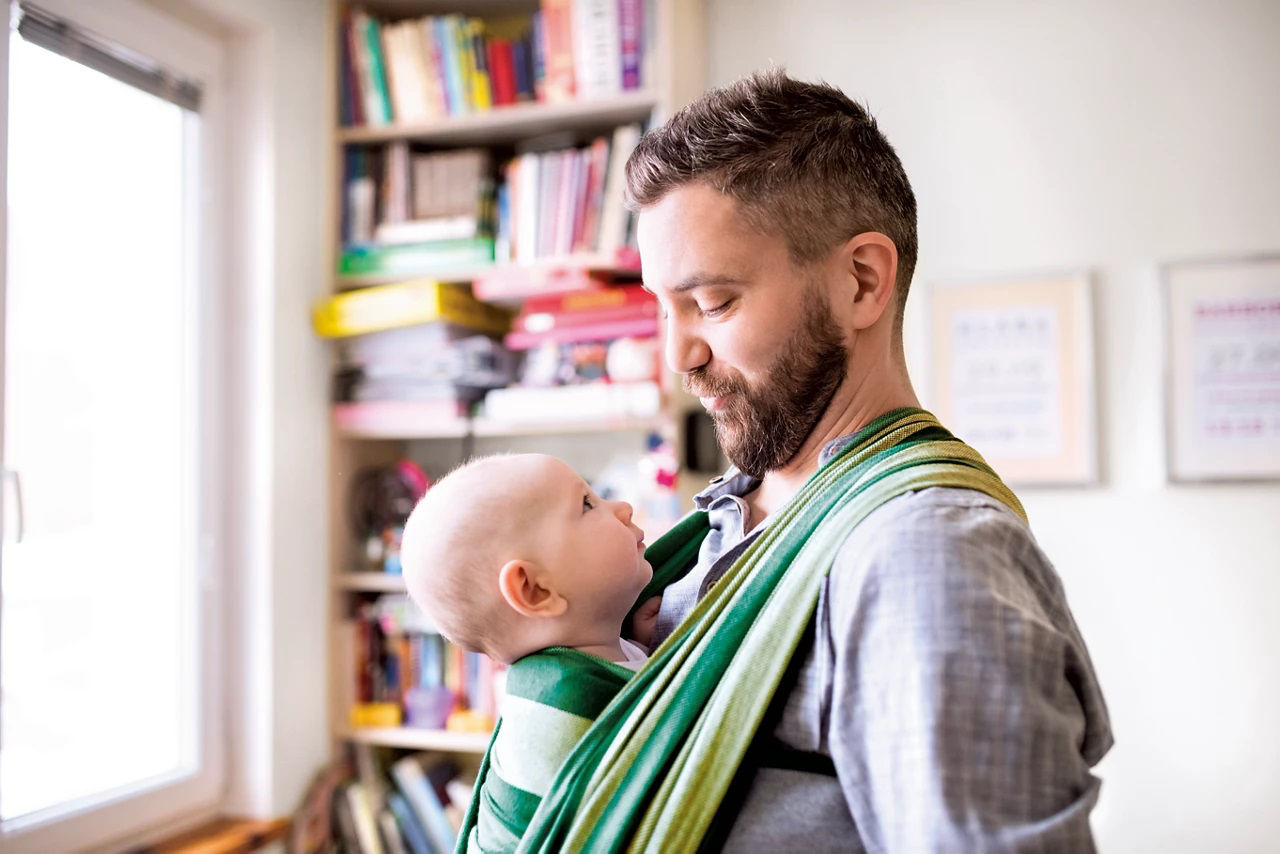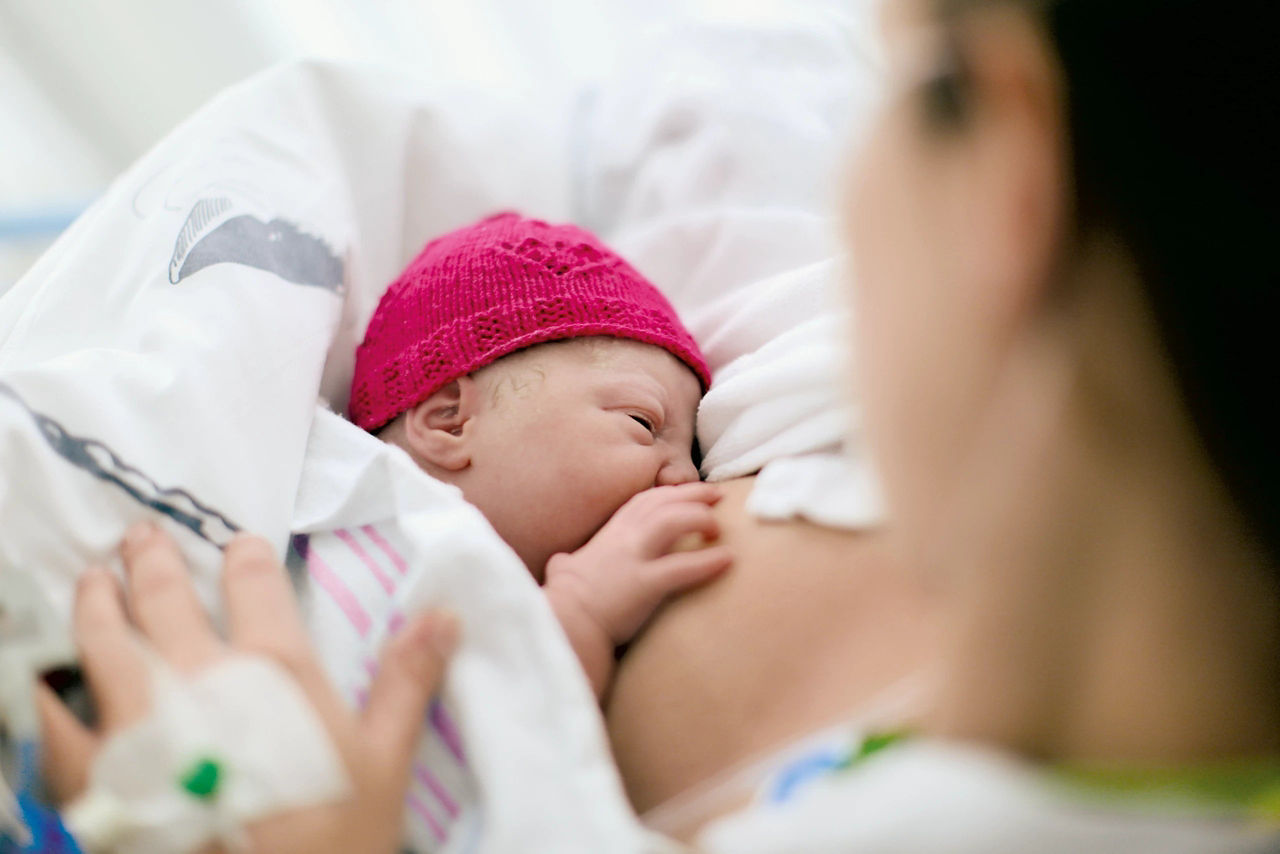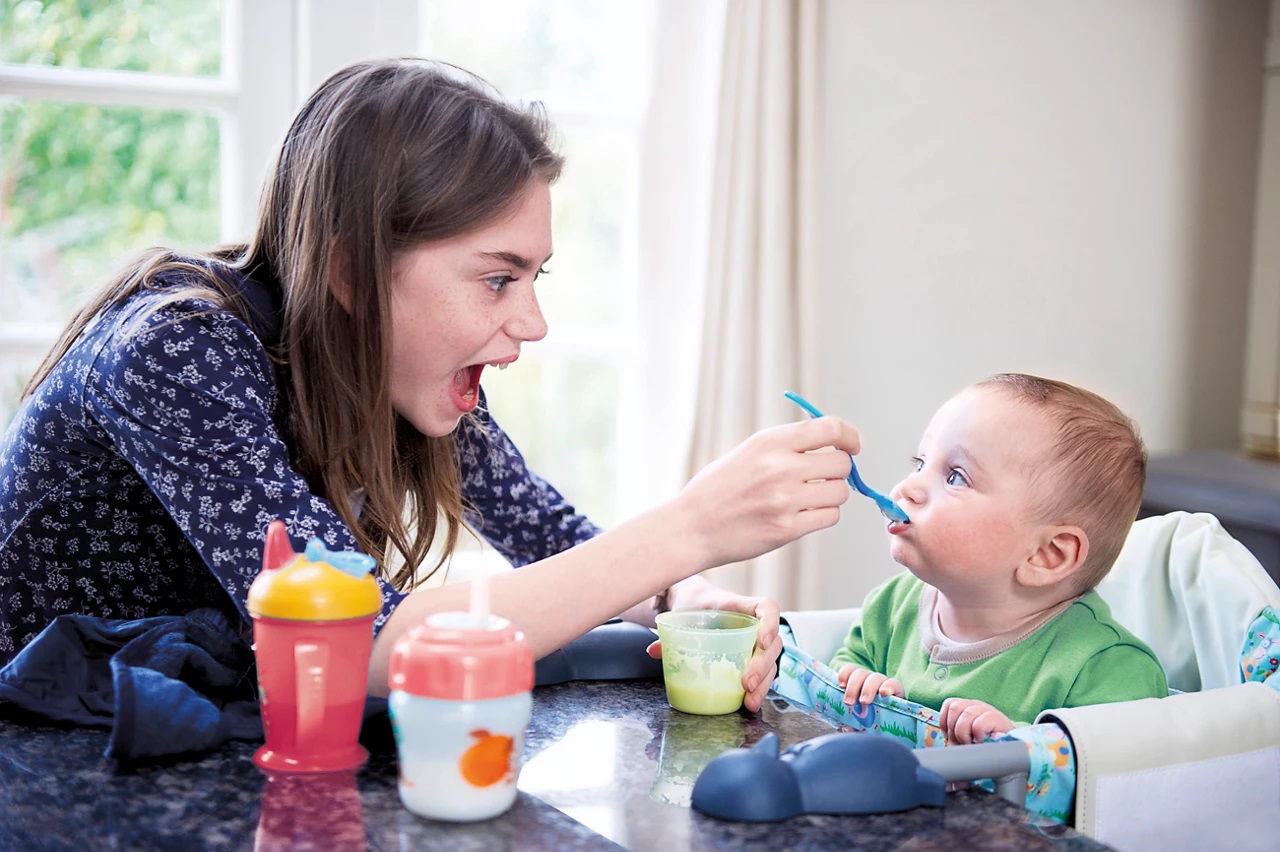Free weaning plan - Register here
When it comes to feeding your little one, you want to make sure you’re getting things just right. And if you’re wondering about how to prepare formula milk, you’re certainly not alone.
Below you’ll find the answers to some common questions on how to prepare formula milk, and how to ensure that you’re protecting your baby’s immune system by doing so safely.
How to make a bottle of formula milk - your step-by-step guide
If you’re looking for a simple, step by step guide on how to prepare formula milk then you’re in the right place.
When it comes to how to make baby bottles of formula milk, it’s very important that you follow the instructions on the pack very carefully. This will ensure that your baby is getting the right amount of powdered infant formula with each feed, and help you to prepare your baby’s feeds safely, protecting their immune system from risk of infection.
Below you’ll find all the steps you need to follow in order to prepare your baby’s formula feeds.
- Wash your hands and sterilise all utensils according to manufacturers’ instructions.
- Boil 1 litre of freshly run tap water. Leave the kettle to cool for 30 minutes and no longer. Measure the required amount of water (refer to feeding guide) into a sterilised bottle. Be careful of scalding. Do not use artificially softened or repeatedly boiled water.
- Using the scoop provided, level off the powdered infant formula with a clean knife or the built-in leveller if provided. Do not press/heap the powder.
- Add the correct measure of powdered infant formula to the water (please refer to the pack instructions). Adding too many or too few scoops can be harmful. Place the sterilised teat and cap on the bottle and shake immediately, vertically and vigorously for at least 10 seconds, until the powder is dissolved.
- Cool the bottle under a cold running water tap. Check the temperature of the feed. Feed immediately.
What’s shakin’, baby?
Did you know that shaking your baby’s milk is a key part of perfectly prepared formula milk? Immediately after the powdered infant formula is added to the water, shake your baby’s bottle vigorously and vertically until all of the powder has dissolved - this takes at least 10 seconds.
Any questions? Formula Preparation FAQs
Parenting is the ultimate plate-spinning exercise. You won’t be the first, and you certainly won’t be the last, to prepare a formula feed only to be distracted by a leaking nappy or an unexpected knock at the door. Or it might just be that your baby isn’t in the mood to drink the whole bottle of milk that you’ve just prepared.
On that basis, you might be wondering whether you can reheat your baby’s bottle of formula milk when they’re ready to feed again? The answer is no. Any formula feed that you prepare should be given to your little one to enjoy straight away.
If your baby starts a feed but doesn't finish it, the bottle is no longer sterile. Bacteria can multiply very quickly at room temperature so the safest option to avoid risk of infection is to discard it and make up a fresh bottle1.
If your baby hasn't yet started drinking from the bottle of formula milk, it will be safe to use for up to 2 hours after you've prepared it. If it's been longer than 2 hours, it's safest to discard and make up a fresh bottle to avoid risk of infection. Within this window, you can reheat it by standing the bottle in boiled water.bIt may be that your baby enjoys their milk at room temperature, whilst others prefer it warm. You’ll soon know your baby’s preferences when it comes to feeding.
You should never reheat your baby’s bottle in a microwave. It can result in the milk heating unevenly, and hot spots which can cause harmful burning.
We know that when it comes to parenting, it can feel as though there just aren’t enough hours in the day. Whilst preparing formula feeds in advance to use throughout the night is tempting, the safest option is to prepare formula and feed it to your baby as and when they need it as this reduces the risk of infection1.
If you’d prefer, you can also use a ready-made infant formula milk to feed your baby during the night. Again, always make sure that you follow the instructions on the bottle or pack when doing so.
Ideally, once you’ve prepared your baby’s formula feed, they should drink it straight away. If that’s not possible, then make sure that you use the bottle of formula milk within one hour if your baby has started the feed and already taken milk from the bottle, or within two hours if the bottle of formula hasn’t yet been touched by your baby’s mouth.
If, for whatever reason, you’re unable to follow the above guidance when preparing your baby’s formula milk, consider using a bottle of ready-to-drink infant formula.
In exceptional circumstances, you may have no other option than to transport a feed as a one-off. If that’s the case, you should follow the NHS guidance very carefully to reduce the risk of infection2:
- Prepare your baby’s bottle and cool it under cold running water.
- Allow your baby’s bottle to cool in the fridge.
- Leave your baby’s formula milk in the fridge until you’re ready to leave. Once you’ve made sure that it’s cold, place it in a cool bag along with an ice pack. The milk must be used within four hours.
- If you don’t have access to an ice pack and the formula milk will be stored at room temperature, then it must be used within two hours.
Your little one can go from happy as a clam to beyond famished in no time at all. But there are no shortcuts here. There’s no ‘quick’ way to prepare formula and you should always follow the instructions on the pack to make sure you’re preparing feeds safely for your baby.
When you’re reading the instructions on how to prepare a bottle of formula milk, you’ll notice that they also provide clear instructions on how to prepare tap water for use when making a bottle of baby formula.
You’ll need to boil 1 litre of freshly run tap water and leave it to cool in the kettle for no longer than 30 minutes. Leaving it to cool for 30 minutes means that the temperature of the water will be around 70℃. This is the right temperature for mixing according to the World Health Organisation/Department of Health (UK).
The water needs to be at this temperature for two reasons. Firstly, to kill any harmful bacteria that may be present (as formula milks are not sterile), and secondly to ensure that the water is not too hot when mixing it with the powdered infant formula, as there’s a risk it may affect its nutritional value.
The NHS doesn’t advise using bottled water to make up your baby’s formula milk. This is due to the fact that it can contain added sodium and sulphates., and often isn’t sterile. As such, you should always use tap water when preparing your baby’s bottles.
Some parents use the Perfect Prep machine to prepare their baby’s feeds. If you choose to do so, then we recommend that you follow the instructions provided by the manufacturer carefully, as they will differ from World Health Organisation/Department of Health (UK) recommendations.
Whether you choose to use a Perfect Prep machine or not, we always advise that you follow the specific instructions on your pack of formula powder, and use the scoop provided. This way, you can be sure that you’re preparing formula safely for your little one.
It isn’t always possible to prepare your baby’s feeds as and when they need them if you’re out and about with your baby for example or going on a trip.
As mentioned above, we recommend any formula that isn't consumed by your baby and had contact with your baby's mouth is thrown away after 2 hours We recommend that any formula that isn’t consumed by your baby within two hours is thrown away. So, in these circumstances, you may want to use a ready-made liquid feed.
In short, no. It’s never advisable to freeze formula milk. Try to prepare your formula feeds as your baby needs them, so they’re always freshly made.
Figuring out how much formula powder to use might be giving you a headache! For some guidance on how much powder to add, you can take a look at our handy milk intake chart here.
Remember that the instructions on the formula pack are there to help and guide you, so always make sure that you read and follow them in the first instance when preparing your baby’s feeds.
IMPORTANT NOTICE:
Breastfeeding is best for babies and provides many benefits. It is important that, in preparation for and during breastfeeding, you eat a varied, balanced diet. Combined breast and bottle feeding in the first weeks of life may reduce the supply of your own breast milk, and reversing the decision not to breastfeed is difficult. The social and financial implications of using an infant formula should be considered. Improper use of an infant formula or inappropriate foods or feeding methods may present a health hazard. If you use an infant formula, you should follow manufacturer’s instructions for use carefully – failure to follow the instructions may make your baby ill. Always consult your doctor, midwife or health visitor for advice about feeding your baby.
- NHS. How to make up baby formula [online] 2023. Available at https://www.nhs.uk/conditions/baby/breastfeeding-and-bottle-feeding/bottle-feeding/making-up-baby-formula/. [Accessed March 2024]
- NHS. Formula milk: common questions [online] 2023. Available at https://www.nhs.uk/conditions/baby/breastfeeding-and-bottle-feeding/bottle-feeding/formula-milk-questions/. [Accessed March 2024]

Join our baby club
Ready to stop worrying about what other people think and do what feels right to you? We’ll give you the support you need to follow your instincts and enjoy parenthood to the max:
Helpful emails
Non-judgemental support
Free weaning plan
Tips from real parents
More from baby
Explore our baby hubs
Baby topics
Need free advice with a smile? Get in touch with our dedicated Care team.
Ask us a question (8am - 8pm Monday to Friday, 10am - 4pm Weekends)
Messenger
Contact us on Facebook (10am - 10pm, 7 days a week)
Call us
Call us on 0800 977 8880 (8am - 8pm Monday to Friday)
FAQs
Get answers to your most frequently asked questions






?ts=1701080540787&dpr=off)

?ts=1701080535170&dpr=off)
